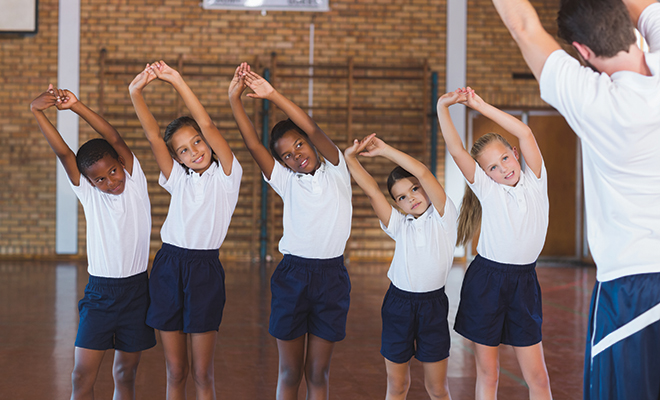
What Does Your Child’s Teacher Want You to Know?
When striving to start a new school year off right, parents want to make sure that their child’s first meeting with their teacher goes smoothly.
Truth be told, teachers are just as aware that how they communicate with students and their parents can set the tone for the rest of the year. Here are some important things that teachers want their students’ parents to know.
Gym Class Is Needed More Than Ever
According to USA Today, at a time when American children are increasingly absorbed in their screens and one-third are overweight, the need for robust physical education is more important than ever. “Physical education should be on equal footing with academic classes. It teaches kids persistence, resilience, positive thinking and how to stay healthy.”
The reality is that today’s youth spend too much time being sedentary and inactive due to increased gaming and computer use. Some reports even call inactivity “the new smoking” among middle school and high school students. This alarming prevalence of obesity and lethargy may well cause today’s kids to have shorter life spans than their parents.
Physical education classes in school not only get youngsters moving, reports from the Physical Activity Council noted that students who were active in school were also twice as likely to develop healthy habits of being active outside of school. So gym class may be something that many students dread, but it is undeniably a platform that instills fitness for all and creates a foundation for fitness as an adult.
Reading Is Not Just an “In Class” Activity
Of all the right things parents can do for their children, encouraging them to spend time reading at home every day may be the most valuable. Studies show that a child with excellent reading skills will become a better communicator and problem solver and will be generally more successful in school and life.
Reading matters to students from kindergarteners to seniors in high school. As gym class exercises the body, reading exercises young brains. “A child’s growth, development and learning are greatly influenced by the access of books in the home,” acknowledged Alva Sachs, president of Reading Is Fundamental of Southern California. “Reading books sparks imagination, creativity and the love of reading that becomes a part of their personality as they continue to grow and develop. Encourage your child’s love of reading by reading together aloud from infancy and beyond. Literacy is a basic need for the growth in kids of any age and should not be limited to a classroom setting.”
School Is Stressful for Some Kids
School-based education and standardized testing have gone hand in hand for many years. Standardized testing is a complicated issue; school districts need internal and external assessments to measure student success while students and parents are not fond of the constant need to test. However, even though standardized testing is necessary to measure a student’s academic success, the excessive demands of testing create a stressful atmosphere that teachers are aware of.
“I wish parents knew that teachers are limited on report card grades because everything is so computer testing data-driven now,” noted a second-grade teacher from Florida. “I also wish they knew their kids misbehave in school due to stress because of all the testing as early as second grade. Right or wrong, standardized testing is something we all need to work with, not against.”
Music Education Shouldn’t Be Viewed as Optional
As many school districts continue to struggle financially, cutting fine arts programs such as music education is often the first response. But supporters of music programs in school are quick to point out that the benefits of music programs such as choir and band help growing young minds. Problem-solving, cognitive skills, mental health support and the discipline that goes along with learning a musical selection is similar to the effort of passing a standardized test and are benefits of music education in schools.
“Music lessons, in a school setting or otherwise, give elementary and middle school kids the advantage of learning how to practice and develop their self-discipline,” shared author and veteran piano teacher Noreen Wenjen. “In my piano studio, every student performs in monthly performance workshops and announces their pieces, which builds public speaking skills. The process of memorizing music and perfecting a musical piece helps students to become successful academic students.”
If you are a parent of a school-aged child, keep in mind that teachers are wholly committed to educating the next generation of workers and leaders, a task that can be as challenging as it is rewarding. One added desire of every teacher when it comes to working with parents and students is communication. Parent involvement in school is proven to make children much more successful in school and education a more enjoyable experience. ■
Sources: nea.org, usatoday.com, phitamerica.org and education.seattlepi.com.







